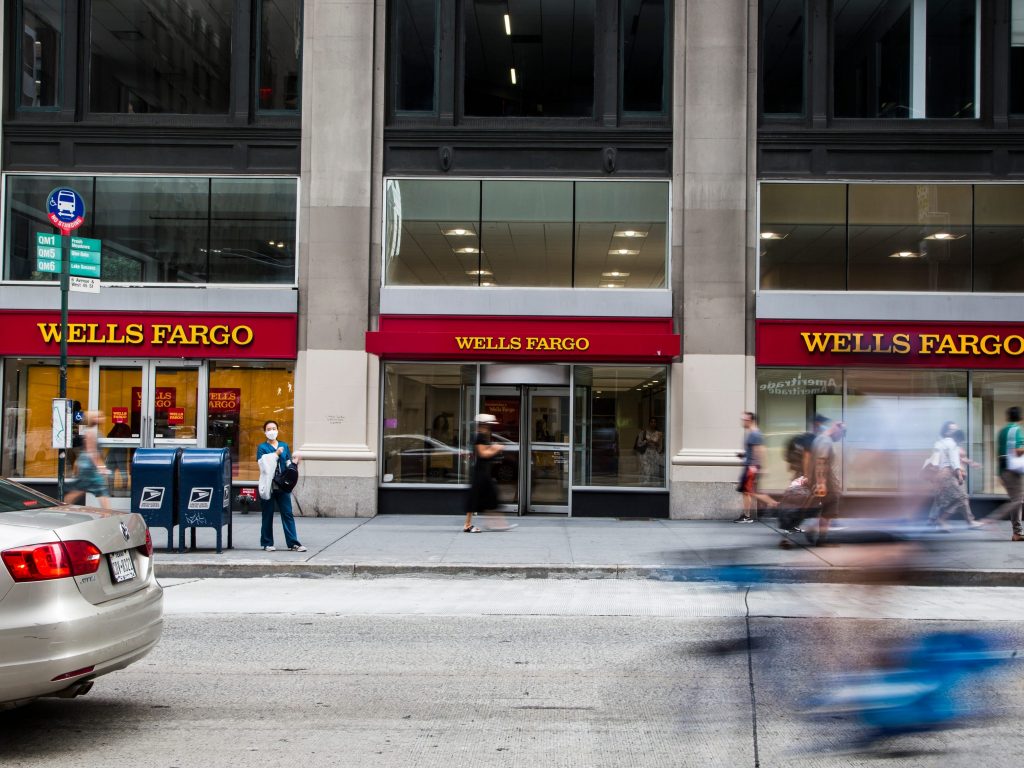- Wells Fargo employees conducted "fake interviews" with diverse job candidates, The NY Times reports.
- One former executive said he was fired after complaining about the practice, which Wells denied.
- The bank says it takes the allegations seriously, vows "decisive action" if inappropriate conduct found.
Wells Fargo employees held fake interviews with diverse job candidates in order to boost diversity numbers, The New York Times' Emily Flitter reported Thursday.
Seven current and former employees, including one former executive, told The Times that they were instructed to interview women and people of color for roles that had already been filled. These efforts, they said, appeared to be a way to show a record of diversity efforts rather than actually hire diverse candidates.
Three current Wells Fargo employees told The Times that the fake interviews had been conducted as recently as this year.
Joe Bruno, an executive in Wells Fargo's wealth-management division up until last August, told The Times that when he complained to his bosses about the "fake interviews" which he said were "inappropriate, morally wrong, ethically wrong," his claims were dismissed and he was ultimately fired. He said he was dismissed in retaliation for raising his concerns, while Wells Fargo told The Times he was let go because he retaliated against a colleague.
A Wells Fargo spokesperson told Insider in a statement that the company investigated The Times' claims and "could not corroborate the claims as factual."
"At the same time, we take the nature of the allegations in the story seriously and, as a company, we do not tolerate the type of conduct alleged," the spokesperson said. "We will continue our internal review and if we find evidence of inappropriate behavior or shortcomings in our guidelines or their implementation, we will take decisive action."
The bank has undergone a significant leadership change over the past year under CEO Charlie Scharf, who joined in 2019. Scharf is the third CEO to take the helm since 2016, when a scandal erupted after the bank was revealed to have opened millions of fraudulent accounts without customers knowing about it.
Wells has since faced billions in fines and overhauled its leadership, including revamping its reporting structure in early 2020 and adding nearly 90 senior hires over the past three years.
But the latest report isn't the first time the bank has landed in hot water over its treatment of people of color. In 2013, Wells faced a racial discrimination lawsuit, which it later settled, and in August 2020, Wells agreed to pay roughly $8 million in back wages after the Department of Labor claimed the bank has discriminated against Black job applicants.
Following the murder of George Floyd in June 2020 and the protests that followed, Scharf wrote in a companywide memo that while the bank would like to hire more people of color, "the unfortunate reality is that there is a very limited pool of Black talent to recruit from." His comments, which he reiterated during a Zoom meeting with employees that summer, angered some employees, and Scharf issued an apology.
The bank later adopted a formal policy requiring a diverse roster of applicants be interviewed for all roles that pay over $100,000 a year.

